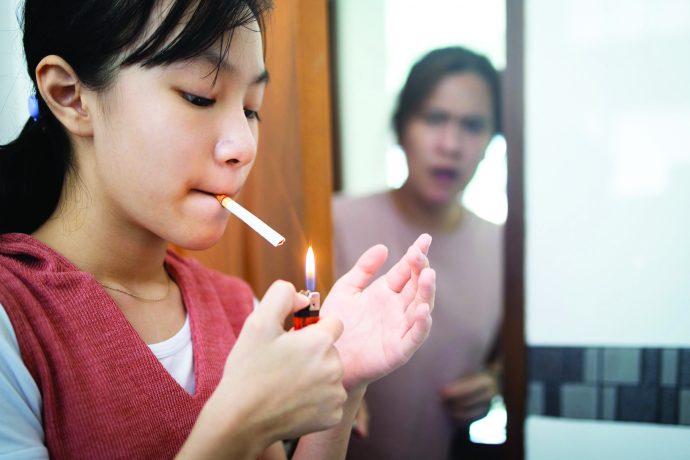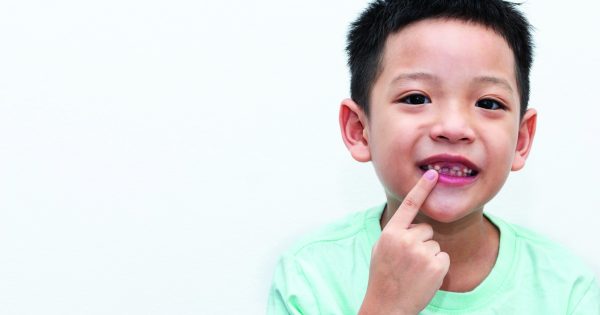Teenagers face many challenges as they grow up and mature into adults. Substance abuse is one of the pitfalls that they (and their parents) need to be aware of and guard against.
According to the National Health and Morbidity Survey (NHMS 2017), 1 in 10 secondary school students in Malaysia smoke cigarettes. You may not think of tobacco or cigarettes as drugs, but one can get addicted to it just like other drugs. Substance abuse is defined as the harmful use of psychoactive substances, including tobacco, alcohol and illicit drugs, which can lead to addiction and other short- and long-term complications.
Substance abuse in numbers*
- 1 in 25 have used drugs
- 1 in 10 smoke
- 1 in 10 drink alcohol
* from NHMS 2017, among 13-17 years olds in 212 secondary schools.
Why do teens do it?
It is important to understand the factors that may cause teens to become involved with substance abuse.
- Peer pressure. Teenagers may start taking drugs or other substances to fit in a group. Often, they are coaxed to try the substance by their friends, who seem to enjoy it. This leads them to believe it is cool or fun to take drugs. A history of substance abuse in the family may also be a contributing factor, especially if the parents are current users.
- Mental health. Some teenagers with mental health issues such as anxiety, depression, conduct disorder and compulsive behaviour take drugs to release their stress. They may use prescription drugs such as pain killers, stimulants and depressants.
- Low confidence. One of the effects of drugs is loss of social inhibition. Many teenagers take drugs to boost their confidence during certain activities, which they are normally too shy and fearful of doing.
- Media portrayal. Smoking, drinking and drug use are often portrayed by the media and in pop culture as common among teenagers and in the community. This normalises the high risk behaviour and indirectly encourages teenagers to consume drugs and other harmful substances.
- Impulsive behaviour. Teens tend to seek out new experiences, particularly high risk behaviour, perceiving it as thrilling. Boredom can also be a factor, as they have difficulty keeping themselves occupied. Hence, they seek excitement in the form of drugs to fill the void in their lives and get instant gratification.
Types of substance abuse
- Ecstasy
- Cigarettes
- Cannabis (marijuana)
- Vaping
- Ketum leaves
- Inhalants (e.g. glue)
- Methamphetamine (syabu)
- Stimulants
- Cocaine
- Painkillers
- Alcohol
- Anti-anxiety drugs
Changes in behaviour
There are many behavioural changes which may indicate substance abuse by teens, including:
- Loss of appetite, lack of energy, agitation, changes in speech, sluggish, excessive sleeping and unsteady gait.
- Skip school and their grades may drop.
- Stop participating in the usual school activities.
- Start stealing money from home and others to purchase drugs.
- Appear to be in a daze or restless, and unduly angry or sad.
What can parents do?
Sadly, substance abuse is common among teenagers. Here’s what you can do to prevent it.
- Maintain a stress-free environment at home and school as much as possible. Create a safe, disciplined and supportive home environment.
- Be a good role model to your teen. Abstain from drug abuse and try to stop smoking and excessive drinking. Remember to praise him and reward his good behaviour.
- Get to know his circle of friends. If you think your teen is in bad company, encourage him to make other friends.
- Do not leave him unsupervised. Spend time talking with your teen about his day. Keep updated with his activities without imposing excessively on him.
- Encourage your teen to participate in healthy activities such as hobbies, sports and part time jobs to keep him occupied. Teenagers who occupy their time well are less likely to get involved in substance abuse.
- You must be well informed about the symptoms and signs of substance abuse. Get professional help if you suspect your teen is experimenting or misusing harmful substances. Support your teen throughout rehabilitation and after recovery.
All parties, including parents, teachers and the community, play a role in preventing substance abuse, educating teenagers and supporting them towards recovery. Be ready to extend a helping hand to teenagers when they are in need. Do not hesitate to seek professional help for them.
Most substance abusers need assistance to break free from the habit.
Resources to help substance abusers
- National Anti-Drug Agency (NADA) (03-89112233/019-6262233)
- Cure & Care 1Malaysia Clinic
- Drug Rehabilitation Centre (Pusat Pemulihan Penagihan Narkotik (PUSPEN))
- Malaysian Drug Prevention Association (PEMADAM) (03-20941190)
An educational contribution by Malaysian Paediatric Association.







Comments